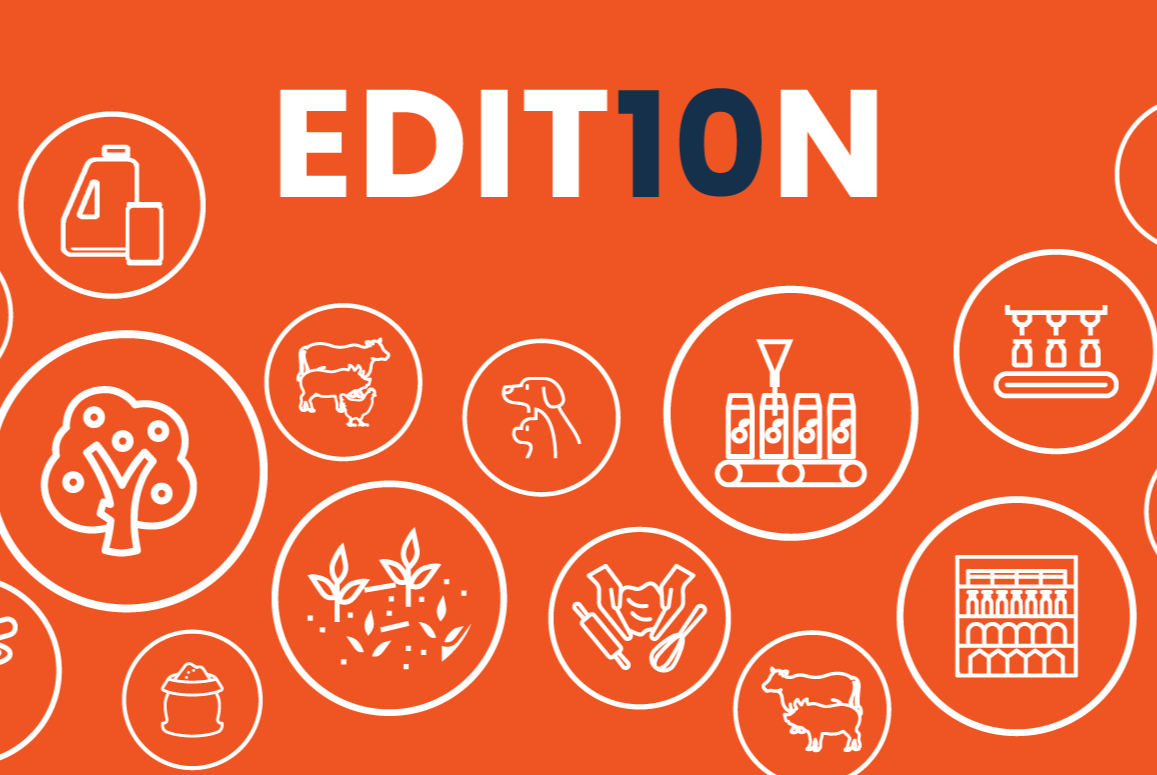SQFI and the National Restaurant Association Partner to Support New Layer of Food Safety Protection for Consumers
ARLINGTON, VA–The Safe Quality Food Institute (SQFI), in partnership with the National Restaurant Association, today  announces the release of the SQF Food Safety Code for Food Service. The code is a unique solution for those in the restaurant and food service industry to reduce food safety risks.
announces the release of the SQF Food Safety Code for Food Service. The code is a unique solution for those in the restaurant and food service industry to reduce food safety risks.
“This foodservice program incorporates food safety roles from the top of the corporate chain down to each specific site location with a heavy emphasis on management and creating a thriving food safety culture within the company,” SQFI Chief Food Safety Assessment Officer Robert Garfield said. “The Food Service Code provides structured guidance to make implementation accessible, attainable and easy to understand.”
According to a recent U.S. Food and Drug Administration study addressing food safety practices and behaviors at restaurants, the use of a food safety management system along with the presence of a certified food protection manager positively impacts food safety behaviors and practices.
“As we see more industry operators advancing their food safety programs, it became obvious that there needed to be a way for businesses to evaluate the efficacy of their programs across all units,” said Sherman L. Brown, executive vice president, training & certification, National Restaurant Association. “The collaboration between SQFI and the National Restaurant Association to create this code provides the industry a way to evaluate how well their systems work.”
The SQFI Food Service Code was developed in conjunction with food safety experts from the National Restaurant Association as well as other stakeholders within the food service industry. The Code addresses the challenges that food service operators face daily and provides them the tools needed to help protect their brand.
The National Restaurant Association and SQFI will host a webinar on October 29 at 2 p.m. Eastern to present more information about the partnership and this initiative that promotes a strong food safety management system.
###
About The Safe Quality Food Institute
The Safe Quality Food (SQF) program is recognized by retailers and foodservice providers around the world as a rigorous, credible food safety management system. It is the only certification system recognized by the Global Food Safety Initiative (GFSI) that offers certificates for primary production, food manufacturing, food packaging, distribution and retail/wholesale grocers. This enables suppliers to assure their customers that food has been produced, processed, prepared and handled according to the highest possible standards, at all levels of the supply chain. Additionally, as a division of the Food Marketing Institute (FMI), the SQF program incorporates continual retailer feedback about consumer concerns. This information is passed on to SQF certified suppliers, keeping them a step ahead of their competitors.
About the National Restaurant Association
Founded in 1919, the National Restaurant Association is the leading business association for the restaurant industry, which comprises 1 million restaurant and foodservice outlets and a workforce of more than 15.3 million employees. We represent the industry in Washington, D.C., and advocate on its behalf. We operate the industry’s largest trade show (NRA Show May 16-19, 2020, in Chicago); leading food safety training and certification program (ServSafe); unique career-building high school program (the NRAEF’s ProStart). For more information, visit Restaurant.org and find us on Twitter @WeRRestaurants, Facebook and YouTube.
Sarah Malenich
Safe Quality Food Institute (SQFI)|
202-220-0660
smalenich@sqfi.com
Mollie O’Dell
National Restaurant Association
(202) 331-5915
modell@restaurant.org
Heather Garlich
Food Marketing Institute
202-220-0616
hgarlich@fmi.org
Vanessa Sink
National Restaurant Association
(202) 973-3965
vsink@restaurant.org
Recent Blog Posts
With Edition 10 audits arriving as early as Jan. 2, 2027, sites that start closing gaps today will walk into their audit with far more confidence than those scrambling at the end of 2026.
SQF Food Safety Code Edition 10 is now available, and it marks more than a routine update to the Code.
As we move toward the launch of SQF Edition 10 in early March, one message is clear. Food safety is no longer evaluated only through programs, procedures, and records.




